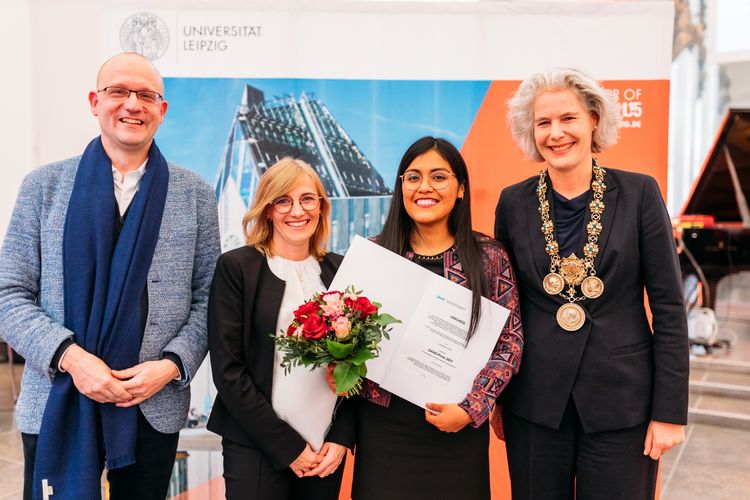"I am very honored to be awarded this Prize. Thank you to the DAAD for this fantastic opportunity to conduct my studies in the SEPT Program at Leipzig University and for this recognition. This Prize motivates me to continue working closely with women entrepreneurs and supporting them in their path to internationalizing their businesses. This is not only part of my research topic but also my commitment. Women entrepreneurs play a crucial role in growing economies, and we, as researchers or entrepreneurs, can contribute to boosting opportunities for them," said Ponce.
The researcher also related how the findings of her research topic prompted her to become an entrepreneur herself in Germany focused on generating positive social impact through her venture.
“As international students, I am convinced that we can significantly impact society, especially in our home countries. After my master’s thesis and finding out the challenges women exporters faced in Peru, I asked myself, how can I give something back and support these amazing entrepreneurs? So I created Oqllu, a social enterprise that is a channel for female-majority enterprises to enter the German market. I encourage other students to explore the same path. There is a huge potential for linking research to viable businesses. Whatever research topic you are passionate about could have the potential to be a business and generate a positive impact on the community”, she added.
The aim of the German Academic Exchange Service (DAAD) prize for international students is to honor students who are completing their studies in Germany and have distinguished themselves through special academic achievements and remarkable social and intercultural commitment. The prize is endowed with 1,000 euros.
Source: Universität Leipzig
